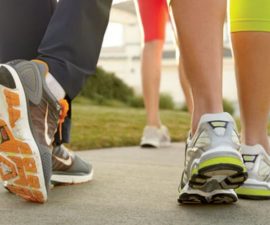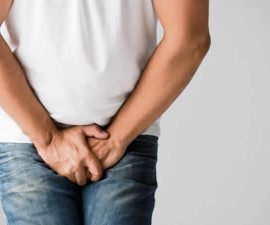… Continued …
Other postoperative discomforts might include:
- Constipation, difficulty passing stools. The movement of your bowel on the toilet is not regular as usual for a few days or weeks after operation.
- Nausea or/and vomiting, especially if your body is allergic to anesthesia.
- Fatigue (tiredness, restlessness, and sleepiness)
Do’s and don’ts after inguinal hernia surgery
Each case is different, because each person with hernia repair will recover differently. The most important thing, follow all instructions from your doctor as you have been told!
In general, here are a few checklists of things you need to do and avoid after operation.
| Do’s | Don’ts |
|---|---|
| Diet | |
| Though there is no specific postoperative diet for hernia repair, it’s always important to stay with balanced and nutritious diet to help recover faster. But the stress of surgery may affect your appetite. Decreased appetite after operation is temporary and it will improve in time. If your appetite loss persists, and also you have severe nausea or difficulty to take in liquids, see your doctor! | Don’t eat constipating foods! Straining on the toilet will make postoperative pain worse. How about alcohol and dairy products? See more what to eat and what to avoid after hernia surgery in this section! |
| Incision /wound care | |
| It’s usually OK to take shower starting about 36-48 hours after operation. Just make sure to carefully wash the area of your hernia repair. If there is gauze bandage on your incisions, take it off before you shower – and change it every day!
Also, keep strips of tape your doctor made for about a week or more until the tape falls off. |
Don’t put alcohol, hydrogen peroxide, or any ointment on the incisions! This will not help them heal better or even may slow your healing. Using warm, soapy water is enough to wash the area — and gently pat it dry. And don’t take bath, hot tubs, or pools for 2-3 weeks after operation!
If you have staples closing the incision, don’t remove the tape yourself! In such case, you usually need to visit your doctor to have them removed! |
| Activity | |
| When you’re ready, return to your normal activities as soon as possible. This can help you recover more quickly. Try to walk every day, and increase the amount you walk gradually by walking a little more than you made the day before. Just listen your body, stop your activity if it hurts or doesn’t feel good!
Having enough physical activity can help improve your blood circulation and relieve constipation. If necessary, use abdominal binder to support the area of your hernia repair during activity, and wear it as directed! |
Although it’s recommended to resume normal activities as soon as possible, avoid straining that cause excess pressure in your abdominal cavity, at least until you recover completely or you doctor says it’s OK. Avoid strenuous exercises like weight lifting, jogging, biking, or lifting anything that would cause you to strain excessively (like lifting a heavy backpack, heavy grocery bags, or a child).
In time, you begin gradually to lift more. As your ability to lift increases, don’t only use your abdominal muscles –use also your back and knees to help support your abdominal muscles when lifting! Also, don’t drive if you still take pain medications or ask your doctor first! |
| Medicines | |
| Take all medicines exactly as directed! Ask your doctor whether you can take OTC pain relievers if you don’t have prescription pain medications, because some OTCs may increase your risk of bleeding.
If you experience side effects of particular medicine, ask your doctor for switching to different medicine. And if you have antibiotics prescription, take the full course of your antibiotics. Even if you start to feel better, complete the course to entirely wipe out all bacteria! |
Don’t discontinue or stop taking your postoperative medicines without consulting your doctor! Also, if you’re regularly taking particular medicine for another health condition, ask your doctor when you can use that medicine again.
Make sure to keep the channels of communication between you and your doctor work well to get the best possible medications to treat your post-surgical discomforts and recover quickly. |
| What else to understand? | |
| Complete recovery can vary from person to person, but typically it takes about a month. But you may be able to return to work a few weeks after operation, depending on whether or not your job requires heavy lifting. If your job involves frequent heavy lifting, you may need more than 4 weeks off from work. | |
| In men, it’s common to find that scrotum turn to become slightly tender or swollen. But this is expected, and will relieve in time. Using ice packs may help ease tenderness (along with prescription pain medications). | |
| Right after surgery, a mild bulge (seroma) may appear — but it’s not a recurrence hernia. Sometimes postoperative fluid fills into the place where the contents of hernia were. Don’t worry! This fluid will be naturally reabsorbed by your body in several weeks. But if the bulge persists, see your doctor! | |
| It may also be helpful to put your hands or a pillow over the area to help support your abdomen and ease the pain when you take deep breaths or cough. | |
| As you can do your daily activities without severe pain, you may be able to resume your normal sexual activities – just use your physical comfort to guide you! | |
| If your pain ruins your sleep, talk to your doctor! It’s important to sleep well every night, because your healing process runs optimally during sleep. | |
| Fatigue is one of common postoperative discomforts. But it will improve in time. Just use your energy effectively – rest when you feel tired! | |
| Stay away from any bad things that can interfere with your recovery, like cigarette smoking. Harmful substances from tobacco smoke may increase the risk of infection and inflammation. Also, some may make it more difficult for blood to distribute oxygen and essential nutrients for your healing. | |
| It’s very important to manage your stress as well. Uncontrolled, excessive stress can make your pain worse. If necessary, schedule time for things that can help you relax such as breathing exercise, which is also helpful to prevent pneumonia (infection of the lung tissue) after major surgery. | |





I had hernia surgery, and after 4 or 5 days i see the bulge is still there. I don’t know if this is ok or not
try to consult again with the doctor. just to make sure.